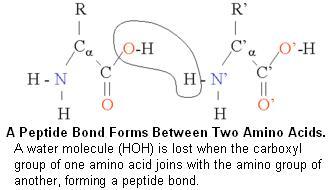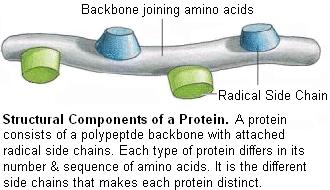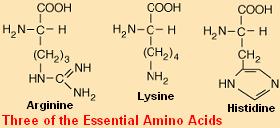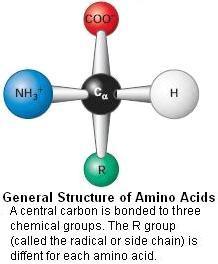Are You Addicted to Stress?
Learn Why Here.
by ExecutiveReasoning.com
Read about being addicted to stress, fear, anger, rage, abuse, hurting others, having power over others, etc – which further highlights how we are addicts to our own personal chemicals… amazing information and very empowering if you can apply this to your life.
You do not need to live life angry, resentful or unhappy.
Learn to control your peptides and receptors and you’ll soon experience a different way of thinking and feeling!
Are You Addicted to Stress? Learn Why Here
Are You Addicted to Stress?
If so, you are not alone! Millions of people are addicted to stress, worry, jealousy, anger and a myriad of other emotions or emotive responses.
Why? Because of the peptidal battle taking place within you every moment of your life. If you weren’t paying attention in high school biology, you might have missed the discussion about peptides and receptor cells. Let me refresh your memory…br>
The Battle of the Peptides
Each tiny cell in your body (& there are billions) has hundreds of receptors on the surface of its external membrane. Each receptor is designed to accept a particular peptide like a lock and a key.
The peptides seek out and attach themselves to these receptors, so they can supply the cell with a particular emotion, or required nutrient or an incentive to take some sort of action, etc.
What’s interesting is that if a person has a predisposition to experiencing his or her physical reality through a particular emotional filter (by predisposition I mean habitual) they will tend to have more receptors on their cells for that emotion compared to other emotions.
**** Even more intriguing is if the cells are continually being fed the same peptide again and again and again…. THEN… When the cell splits, there will be even more of those types of receptors on both of the new cells. ****

So hopefully you can now understand that by habitually living in a certain emotional state, and habitually reacting with one emotional pattern, you will reinforce an ever-increasing bond between your body and that particular emotion.
This is why quitting smoking, or giving up any physical or emotional addiction, is so difficult for most people. The addiction has forced our cells to morph and they now depend on a particular peptide for sustenance. Our very cells demand the chemical fix! To conceive of stopping that continual flow of poison is not logical to the brain because there is no “Objective Observer” operating when an addiction is in control.
In fact, there is no real self in the driver’s seat at all. The addiction is driving the experience. With no one else to step in and take over, the cells in your body can become victims of both physical and emotional addictions.
The Gnostics Call This ‘Death’
When our physical body is controlled by a habit and emotion, we become slaves to our own internal chemicals. This is the definition of mental addiction.
It’s important to understand that once you’ve discovered your addiction, and you decide to change this fundamental aspect of yourself, a slow but steady approach works best.
How many times have you, or someone you know, tried to quit smoking cigarettes ‘cold turkey’, only to be smoking again a month later? This is the reason why anyone serious about quitting smoking should start by reducing the number of cigarettes they consume each day. This will allow their cells to adapt their receptors. Slowly but surely they’ll require less of the peptides provided by the chemicals in the cigarette.
This concept is easily understood when you consider the nicotine gum treatment, where successive prescriptions of the gum will have less and less nicotine. This allows your body to be ‘weaned off’ of the addictive substance slowly.
Quitting smoking is an easy example.
BUT…. What about quitting being angry all of the time? Or quitting jealousy or worry or stress? These states of mind and emotional being are also driven by the peptide/receptor relationship.
If you have spent most of your life hating something, then you have an excess of receptors waiting to be fed that particular ‘hate’ peptide. If you’ve always been a jealous person, then you’re feeding your cells the jealousy peptide, and there are more ‘jealousy’ receptors than ‘love’ receptors on your cells.
*** All emotional and physical habits
can be traced back to this
ongoing chemical relationship. ***
Your body is truly an amazing instrument, but it doesn’t exist without your mind. Take time to exercise your mind.
The mental stimulation will keep you sharp and prepared.
If you put my program into practice, you will have now started to decrease those receptors for emotions which do not serve you. You will stop feeding them the negative thoughts and behaviors they thrive on.
At the same time, you will have begun to increase the receptors for the peptides that stimulate the feelings and emotions you do want in your life.
By working on both sides of the physiological equation together – focusing on what you want to experience and removing from your focus anything you don’t want to experience – you will find a quickened path to your goal.
Excerpt from the movie “What the Bleep Do We Know?” – reflection on emotion
” The brain is made up of tiny nerve cells called ‘neurons’. These neurons have tiny branches that reach out and connect to other neurons to form a neural net. Each place where they connect is incubated into a thought or a memory. Now, the brain builds up all its concepts by the law of associative memory. For example, ideas, thoughts and feelings are all constructed and interconnected in this neural net and all have a possible relationship with one another. The concept and the feeling of love, for instance is stored in this vast neural net. But we build the concept of love from many other different ideas. Some people have love connected to disappointment.When they think about love, they experience the memory of pain, sorrow, anger and even rage. Rage may be linked to hurt, which may be linked to a person, which then is connected back to love. We build up models of how we see the world outside of us. And the more information that we have, the more we refine our model one way or another. And what we ultimately do is tell ourselves a story about what the outside world is.
Any information that we process, any information that we take in from the environment is always colored by the experiences that we’ve had and an emotional response that we’re having to what we’re bringing in. Who is in the driver’s seat when we control our emotions or we respond to our emotions? We know physiologically that nerve cells that fire together wire together. If you practice something over and over, those nerve cells have a long-term relationship. If you get angry on a daily basis,if you get frustrated on a daily basis, if you suffer on a daily basis, if you give reason for the victimization in your life – you are rewiring and reintegrating that neural net on a daily basis. That neural net now has a long-term relationship with all those other nerve cells called an “identity.” We also know that nerve cells that don’t fire together no longer wire together. They lose their long-term relationship because every time we interrupt the thought process that produces a chemical response in the body – every time we interrupt it, those nerve cells that are connected to each other start breaking the long-term relationship. When we start interrupting and observing – not by stimulus and response and that automatic reaction – but by observing the effects it takes, then we are no longer the body-mind conscious emotional person that’s responding to its environment as if it is automatic.
Does that mean emotions are good or emotions are bad? No, emotions are designed so that it reinforces chemically something into long-term memory. That’s why we have them. All emotion is, is holographically imprinted chemicals. The most sophisticated pharmacy in the universe is in here. There’s a part of the brain called the hypothalamus, and the hypothalamus is like a little mini factory and it is a place that assembles certain chemicals that matches certain emotions that we experience. And those particular chemicals are called “peptides”. They are small-chain amino acid sequences. The body’s basically a carbon unit that makes about different amino acids altogether to formulate its physical structure. The body is a protein-producing machine. In the hypothalamus, we take small-chain proteins called peptides and we assemble them into certain neuropeptides or neurohormones that match the emotional states that we experience on a daily basis. So there are chemicals for anger, and there are chemicals for sadness, and there are chemicals for victimization. There are chemicals for lust. There’s a chemical that matches every emotional state that we experience. And the moment that we experience that emotional state in our body or in our brain that hypothalamus will immediately assemble the peptide and then releases it through the pituitary into the bloodstream. The moment it makes it into the bloodstream it finds its way to different centers or different parts of the body.
Now, every single cell in the body has these receptors on the outside. One cell can have thousands of receptors studding its surface, kind of opening up to the outside world. And when a peptide docks on a cell it literally, like a key going into a lock, sits on the receptor surface and attaches to it, and kind of moves the receptor. And kind of like a doorbell buzzing, sends a signal into the cell.
What happens in adulthood is that most of us who’ve had our glitches along the way are operating in an emotionally detached place, or we’re operating as if today were yesterday. In either the disconnected place, or the overly emotional reactive place, because they’ve gone to an earlier time in reality, the person is not operating as an integrated whole.
Along the outside of the cell are these billions of receptor sites that are really just receivers of incoming information. A receptor that has a peptide sitting in it changes the cell in many ways. It sets off a whole cascade of biochemical events, some of which wind up with changes in the actual nucleus of the cell. Each cell is definitely alive. Each cell has a consciousness, particularly if we define consciousness as the point of view of an observer. There is always the perspective of the cell. In fact, the cell is the smallest unit of consciousness in the body.
My definition of an addiction is something really simple: something that you can’t stop. We bring to ourselves situations that will fulfill the biochemical craving of the cells of our body, by creating situations that meet our chemical needs. The addict will always need a little bit more in order to get a rush or a high of what they’re looking for chemically. So my definition really means that if you can’t control your emotional state, you must be addicted to it. So how can anyone really say they’re in love with a specific person, for example? They’re only in love with the anticipation of the emotions they’re addicted tobecause the same person could fall out of favor the next week by not complying. My goodness, doesn’t that change the landscape of our emotional outlook on personal needs and identities?
We are emotions and emotions are us. Again I can’t separate emotions.When you consider that every aspect of your digestion, every sphincter that opens and closes, every group of cells that come in for nourishment and then moves out to heal something or repair something – those are all under the influence of the molecules of emotion. I mean, it’s this total buzz. So you ask if emotions are bad. Emotions are not bad. They’re life. They color the richness of our experience. It’s our addiction that’s the problem. The thing that most people don’t realize is that. When they understand that they are addicted to emotions–it’s not just psychological. It’s biochemical. Think about this: heroin uses the same receptor mechanisms on the cells that our emotional chemicals use. It’s easy to see then that if we can be addicted to heroin… then we can be addicted to any neural peptide, any emotion. – from the movie “What the Bleep Do We Know?”
Are You Addicted to Stress? Your Peptides Are in Control
Are You a Peptide Addict?
If you are addicted to stress, then please know you’re not alone! Millions of people are addicted to stress, worry, jealousy, anger and a myriad of other emotions or emotive responses. Why? Because of the peptidal battle taking place within you every moment of your life. If you weren’t paying attention in high school biology, you might have missed the discussion about peptides and receptor cells. Here is a refresher…
The Battle of the Peptides
Each tiny cell in your body (there are billions) has hundreds of receptors on the surface of its external membrane. Each receptor is designed to accept a particular peptide like a lock and a key. The peptides seek out and attach themselves to these receptors, so they can supply the cell with a particular emotion, or required nutrient or an incentive to take some sort of action, etc. What’s interesting is if a person has a predisposition to experiencing his or her physical reality through a particular emotional filter (by predisposition I mean habitual) they will tend to have more receptors on their cells for that emotion compared to other emotions. Even more intriguing is if the cells are continually being fed the same peptide again and again, when the cell splits there will be even more of those types of receptors on both of the new cells. So hopefully you can now understand that by habitually living in a certain emotional state, and habitually reacting with one emotional pattern, you reinforce an ever-increasing bond between your body and that particular emotion.
This is why quitting smoking, or giving up any physical or emotional addiction, is so difficult for most people. The addiction has forced your cells to morph and they now depend on a particular peptide for sustenance.
Your very cells demand the chemical fix!
To conceive of stopping that continual flow of poison is not logical to your brain because there is no Objective Observer operating when an addiction is in control.
In fact, there is no real self in the driver’s seat at all. The addiction is driving the experience. With no one else to step in and take over, the cells in your body can become victims of both physical and emotional addictions.
When both your body and your mind are controlled by your emotional habits, instead of the other way around, you become a slave to your own internal chemicals.
However, the battle of the peptides can be turned in your favor!
Emotional Addiction
Why does this always happen to me? Not again! It never fails! I’m such a screw up. If I didn’t have bad luck, I’d have no luck at all. Nothing ever goes right for me. I’m so stupid. Why doesn’t (s)he want me? What am I doing wrong? Am I really that ugly that others don’t find me attractive? Why do I always seem to meet the same (wo)men.
Like a dog returns to its vomit so too do we return to the same situations we’ve found ourselves in our entire lives. We are all just creatures of habit, or so we’re told. I’d suggest an alternate position; we’re creatures of addiction. The word addiction has become connotatively synonymous with alcohol and drug use. Even tobacco is considered an addiction. We think of addiction as negative and typically relate it to some outside stimulation or cause for the effect. Addiction is nothing more than a chemical reaction in the brain and is not limited to external stimuli. Simply put, the definition of addiction is something you cannot stop. But, is it possible to be addicted to emotional states as well?
We must begin by understanding how the brain works neurologically. The brain cells are made up of tiny nerve cells called neurons. These neurons have branches that reach out to the other neurons to create a neuronet. Each place the branches are connected is integrated into and associated with a thought or a memory. The branches of the neuron reach out and touch the branches of other neurons firing electrical currents to each other. All our thoughts, ideas, emotions and memories are interconnected in this neuronet by the firing of electrical charges. Physiologically, cells that fire together wire together and if we practice something over and over again, the nerve cells create a long term relationship. If we get angry or frustrated on a daily basis we create a long term relationship in the neuronet called an identity. Likewise, the nerve cells that no longer fire together break the connection with each other. Every time we continually interrupt a thought process the long term relationship gets lost. Let’s say a man is abusive or commits adultery on his women. Her brain will automatically associate love with abuse and/or infidelity. If she walks down the street and sees a couple kissing, a firing occurs in the area associated with love, and with the neurons connecting love to infidelity, she will assume the man in the couple is merely waiting to see his other lover. She will see him for the Bastard, she thinks he is.
Emotions are not only hate, love and fear etc. but can also be the way a particular drug makes us feel. Deep in the brain is the hypothalamus. The hypothalamus produces chemicals called peptides made up of small chain amino acid sequences that reflect every emotion we experience. The moment we experience any particular emotion, the hypothalamus releases these peptides into the blood stream which find their way to the appropriate receptors located in our body’s cells. One cell can have thousands of receptors and each receptor is form fitted for a particular chemical. When the peptide locks itself into a receptor it can actually alter the nucleus of the cell and bring about physical manifestations of an emotion. If the peptide for anger were released and received it can alter the cell to the point of creating violent behavior and not just being merely upset.
Again, when we think of the word addiction we think of alcoholism, smokers and drug use. When addiction occurs we produce a tolerance to whatever peptides we’re sending out to our cells. The cell gets overloaded and cannot handle being bombarded with so many peptides at once that it dies off, but before its death and during it’s replication it creates new cells with more receptors to accept those peptides it’s been receiving on a regular basis. With more receptors, more peptides can be accommodated and thus a tolerance is built up taking more peptides to overload it. The cells also now require and even desire more of that peptide because it has the receptors to receive it. This is why prescription pain killers, for example, end up being increased over long term use. Our bodies have created new cells with more receptors to accept the narcotic, which the brain then translates into peptides, thus it requires more narcotic to get the same effect as before the body started receiving the narcotics.
Like drug use and alcohol, our bodies treat emotions the same way. As an example, if we constantly create the “victim” peptide, we overload our body’s cells with the emotion of feeling victimized to the point we don’t know how to feel anything else. It seems everything and everybody is always against us and a simple thing like spilling milk becomes a huge issue because “It’s happening to me again. Why is it always me?” We become addicted to our emotions and when this happens, our neuronet begins to fire together creating different long term relationships. We then relate to the emotion of victimization because the relationships we’ve created within our neuronet relate thoughts, ideas, emotions and memories together. It would seem this is an endless cycle which ends in a downward spiral and for many it has. However, there exists a process which can be practiced to reverse this horrible mindset.
Above I wrote about the breaking of long term relationships within the neuronet. When we allow ourselves to think negatively, we begin the process of creating those long term relationships of negativity. This also breaks the long term relationships, or identities, of anything we may think positively about ourselves or anything else. However, when a negative thought enters the mind, we have the power to terminate that thought, breaking the long term relationship and replace it with something positive. Thus we’ll begin re-wiring our brains, which translates into the releasing of peptides that have a euphoric or joyful feeling about them rather than a feeling of sadness, hate, despair or disgust. We can begin to create an addiction to positive things, learning to love ourselves and in turn love others. In the end, when you’ve learned to love yourself, you can accept yourself which then allows you to freely express yourself as who you are because finally you’ve found out who that is. It’s someone beautiful.
No longer can we ask why we always seem to find the same type of guy or girl because the answer is simple. We find those people because they’re who we want to find. If we’re always finding ourselves in abusive relationships the fault cannot be laid anywhere but in the neuronet you’ve created. Reprogram your mind and be beautiful then find someone else who is beautiful.


Originally posted by: executivereasoning.com


